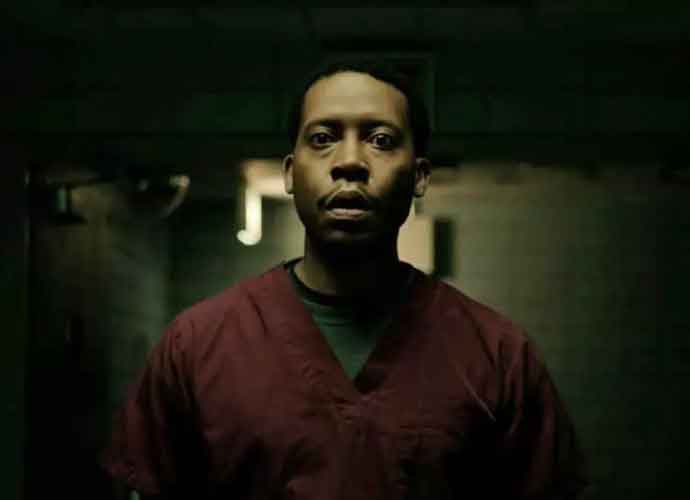‘Rounding’ Tribeca Film Review: Solid Scares & Great Lead Performance Anchor This Medical Horror

3.5/5
The new psychological horror film Rounding, which recently premiered at the Tribeca Film Festival, provides an intimate character study of medical resident James Hayman while at the same time serving up some excellent horror imagery and tense moments where the audience really doesn’t know whose perspective to believe.
Rounding occasionally buckles under its own weight from a scripting perspective, with slightly more flatly-depicted characters that clearly didn’t get as much attention as the lead, and an ending twist that doesn’t quite stick the landing.
It still very effectively holds your attention with some disjointed, bizarre directing and editing that mirrors James’ increasing mania, and delivers enough frights to be very much worth the price of admission for fans who like a slow-burn horror.
James, played brilliantly by Namir Smallwood, is a young doctor who transfers to a small, rural hospital after suffering a breakdown, but quickly becomes obsessed with the case of a young asthma patient Helen Adso (Sidney Flanigan), and starts to pursue it relentlessly.
Helen and James’ relationship is another sore point in the film, as their dynamic isn’t explored as much as it should be given that she’s the key to James’ mystery. This could’ve been a commentary on James’ flaw in fixating on the condition of the patient, but just felt more like a bit of a waste of Sidney Flanigan’s potential, as she had precious few scenes to establish what the character of Helen was really like.
One of the more satisfying parts of this film was showing James’ developing paranoia and increasing unreliability. Smallwood successfully toes a fine line of keeping viewers rooting for his character but also beginning to question his decisions as he gets deeper and deeper in his investigation. Even in non-dialogue scenes, Smallwood always held attention and delivered some really unsettling moments perfectly.
The film’s depiction of sleep deprivation, a very relevant issue for physicians now, also helps bring us closer to James’ struggle and perspective. For example, we see him poring over records, then there’s a jarring jump cut to him asleep hours later. While this isn’t a revolutionary technique, it worked to communicate his mental state. Tons of little tricks like that are employed to make viewers unsure how long time has passed and disoriented in a way that mirrors the character they’re watching.
The film isn’t a creature feature, but without spoiling much, James gets subjected to some bizarre hallucinations incorporating religious imagery as his sleep deprivation worsens. Some may scoff at the creature when it’s more fully revealed, but it was effective enough to raise the tension more.
Overall, horror fans will certainly appreciate this outing from director Alex Thompson, despite the plot holes. Making a psychological horror that really feels psychologically straining is difficult to achieve and with effective directing and great casting in Smallwood, it was certainly managed here.
RELATED ARTICLES
Get the most-revealing celebrity conversations with the uInterview podcast!







Leave a comment